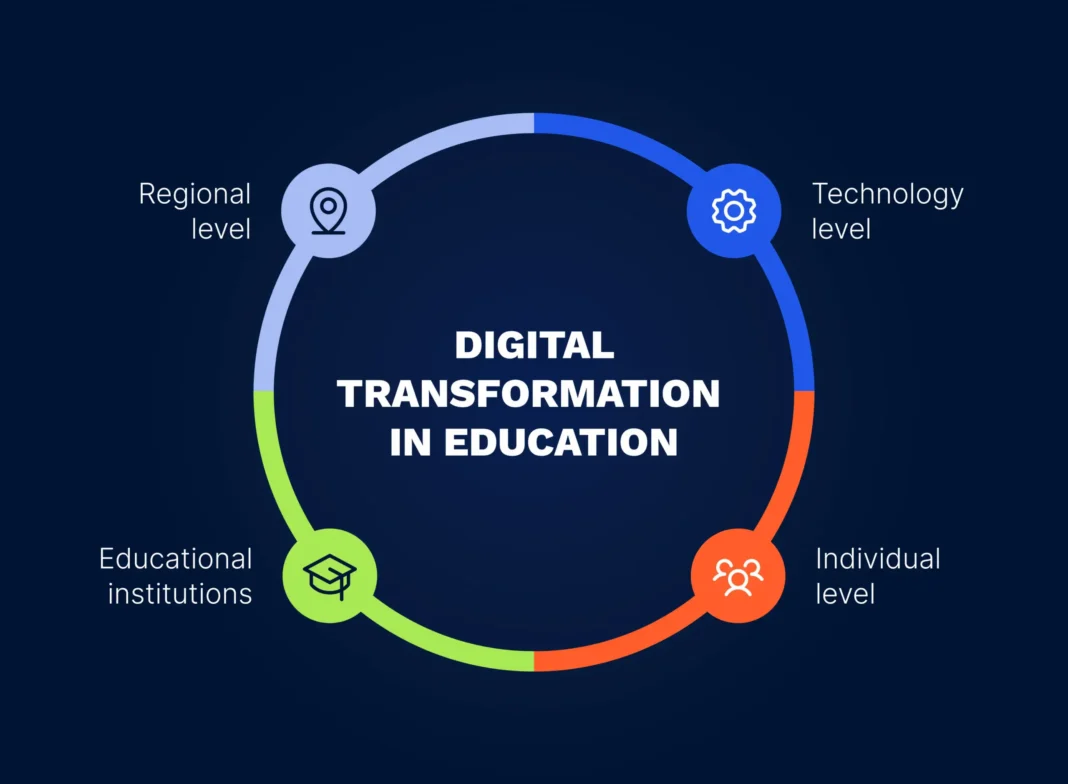The digital transformation of industries is accelerating at an unprecedented rate, reshaping how businesses operate, deliver services, and engage with customers. As organisations undergo this transformation, the demand for skilled professionals who can lead digital initiatives is growing rapidly. Higher education is playing a crucial role in preparing students for this future, equipping them with the technical and strategic skills necessary to thrive in a digital-first world. Degrees such as an ms in business analytics and certifications from a data science online course are prime examples of how higher education is meeting the needs of the evolving job market.
Digital transformation involves integrating technology into every aspect of business operations, from automating processes to enhancing customer interactions. This shift requires leaders who can effectively leverage data, implement new technologies, and drive innovation within their organisations. Higher education institutions are stepping up to this challenge by offering programmes that focus on developing the expertise needed to navigate the complexities of digital transformation.
The Role of Business Analytics in Digital Transformation
As digital transformation continues to shape the business landscape, the importance of data-driven decision-making cannot be overstated. The ability to analyse and interpret data is essential for understanding market trends, improving operational efficiency, and delivering better customer experiences. An ms in business analytics provides students with the skills to extract actionable insights from data and apply them to strategic business decisions.
Graduates of business analytics programmes are well-equipped to lead digital transformation efforts in their organisations. They are trained to use advanced analytics tools and techniques, enabling them to identify opportunities for growth and innovation. Whether optimising supply chains, improving marketing campaigns, or enhancing customer engagement, business analysts play a key role in driving digital initiatives that lead to greater efficiency and competitive advantage.
Moreover, an ms in business analytics prepares students to work in a variety of industries, from finance and healthcare to retail and manufacturing, where digital transformation is becoming increasingly critical. These graduates possess the technical and analytical skills to help organisations navigate the challenges of integrating digital technologies into their operations.
The Impact of Data Science on Digital Transformation
In addition to business analytics, data science is another essential component of digital transformation. Data science enables businesses to harness the power of big data, machine learning, and artificial intelligence to drive innovation and make informed decisions. For students pursuing a data science online course, the opportunities to contribute to digital transformation are vast.
A data science online course equips learners with the skills to work with large datasets, develop predictive models, and create AI-driven solutions. These skills are highly valuable in industries that rely on data to optimise operations, forecast trends, and enhance customer experiences. Data scientists are often at the forefront of digital transformation efforts, using their technical expertise to create solutions that improve efficiency, reduce costs, and deliver better outcomes.
The flexibility of a data science online course allows students to gain these valuable skills while balancing their professional and personal commitments. This makes it an ideal option for working professionals who want to stay ahead of the curve in an increasingly digital job market.
The Future of Higher Education and Digital Transformation
As digital transformation continues to evolve, the role of higher education will become even more critical in preparing students for the future of work. Institutions must continue to adapt their curricula to reflect the latest advancements in technology, ensuring that graduates are equipped with the skills needed to lead in a digital-first world. Programmes like an ms in business analytics and data science online courses are paving the way by providing students with the technical expertise and strategic thinking required to succeed in the modern business landscape.
Higher education will also need to focus on fostering innovation and creativity, as these qualities will be essential for navigating the complexities of digital transformation. By encouraging students to think critically and embrace new technologies, universities can help shape the next generation of leaders who will drive digital transformation across industries.
Conclusion
The role of higher education in digital transformation is pivotal to the future of business and society. Degrees like an ms in business analytics and data science online courses are equipping students with the skills and knowledge needed to lead digital initiatives and thrive in an increasingly digital world. As industries continue to evolve, the demand for professionals who can navigate digital transformation will only grow, making higher education a crucial component in preparing for the future.


